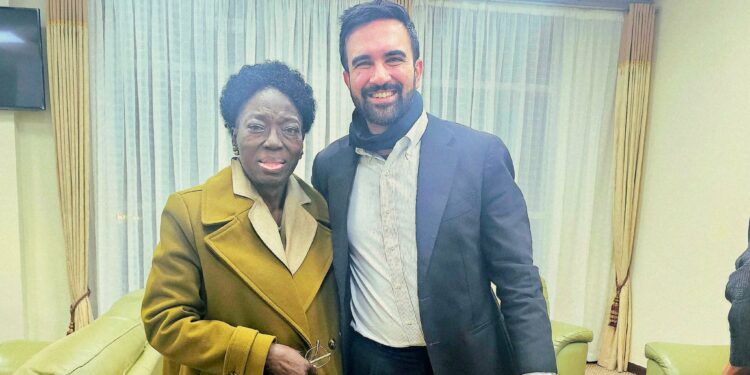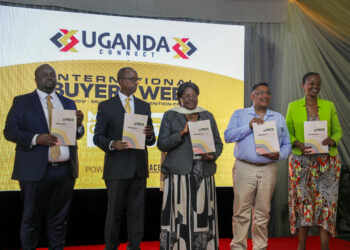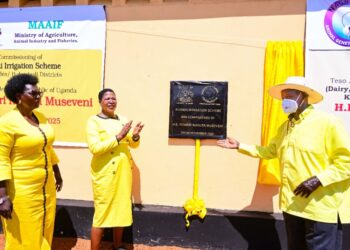Uganda’s First Deputy Prime Minister Rebecca Kadaga has extended a warm welcome to New York State Assemblyman and Democratic nominee for New York City mayor, Zohran Mamdani, during his recent visit to the country for his wedding. Zohran, son of renowned academic Mahmood Mamdani, celebrated a traditional ceremony in Kampala in July 2025.
Photos from the encounter, shared by Kadaga on X (formerly Twitter) on July 31, 2025, show the group at an upscale Kampala office. In her post, Kadaga expressed delight at meeting Zohran and his father, highlighting their shared Ugandan roots. However, Zohran later described the interaction to critics as a chance airport meeting, a claim contradicted by reports indicating a more formal setting.
The event highlights the intersection of political diplomacy, family heritage, and Zohran’s rising profile in U.S. politics, fueling debates about his dual identity and potential influence on transatlantic relations.
A Lavish Wedding in Elite Surrounds
Zohran’s wedding to artist Rama Duwaji—whom he met on the Hinge dating app—was a three-day extravaganza at the Mamdani family’s expansive estate on affluent Buziga Hill, overlooking Lake Victoria. The suburb is a haven for Uganda’s political and business elite, featuring luxurious mansions and high-end resorts.
According to a New York Post investigation, the festivities included heavy security: masked armed guards resembling military personnel, phone-jamming devices, and multiple checkpoints—measures that starkly contrast with Zohran’s socialist platform, which emphasizes economic equality, rent freezes, and defunding the police. The estate, valued at over $1 million, underscores the family’s global affluence; Mahmood Mamdani and his wife divide their time between Uganda, New York, and New Delhi.
Born in Uganda and relocating to the U.S. at age seven, Zohran became a U.S. citizen in 2018. Despite his grassroots image—living in a rent-stabilized apartment in Astoria, Queens—the wedding has amplified scrutiny of his privileged lineage.
Political Implications and Backlash
The timing of Kadaga’s meeting with the Mamdanis, shortly after Zohran’s Democratic primary win, has sparked speculation about efforts to bolster international ties ahead of his mayoral campaign. Kadaga, a veteran politician and former Speaker of Parliament, has a controversial record, including her 2012 description of Uganda’s harsh anti-LGBTQ+ law as a “Christmas gift” to supporters—a measure that imposed life imprisonment for homosexuality.
Mahmood Mamdani, founder of the Makerere Institute of Social Research, brings an intellectual layer to the narrative. His scholarly critiques of postcolonial power structures align with Uganda’s complex political discourse, yet the wedding’s opulence—held amid national reflections on justice and equality—has drawn accusations of tone-deafness. Some local voices have questioned its sensitivity, though no direct link to the 2023 passing of former Supreme Court Justice George Kanyeihamba was confirmed in reports.
On X, critics like @CityDeskNYC have branded the affair “performative authoritarianism,” arguing it erodes Zohran’s credibility as a champion for the marginalized. Others, including @queens_parents, pointed to the photo’s setting as evidence contradicting Zohran’s airport claim.
A Bridge Between Worlds – or a Source of Tension?
For Uganda, Zohran’s visits symbolize a vital link between East African diaspora communities and Western political arenas, potentially enhancing cultural exchange and investment. Yet, they also prompt questions of accountability: How do elite family connections square with a platform rooted in anti-elitism?
As Zohran campaigns in New York—promising universal childcare, free buses, and rent relief—his Ugandan heritage could enrich his story of resilience and multiculturalism. Alternatively, it risks exposing perceived hypocrisies in his ethos.
Watchdog Uganda will track this story, examining how Zohran’s Kampala connections might sway his mayoral bid and shape perceptions of Uganda on the global stage.
Do you have a story in your community or an opinion to share with us: Email us at editorial@watchdoguganda.com














